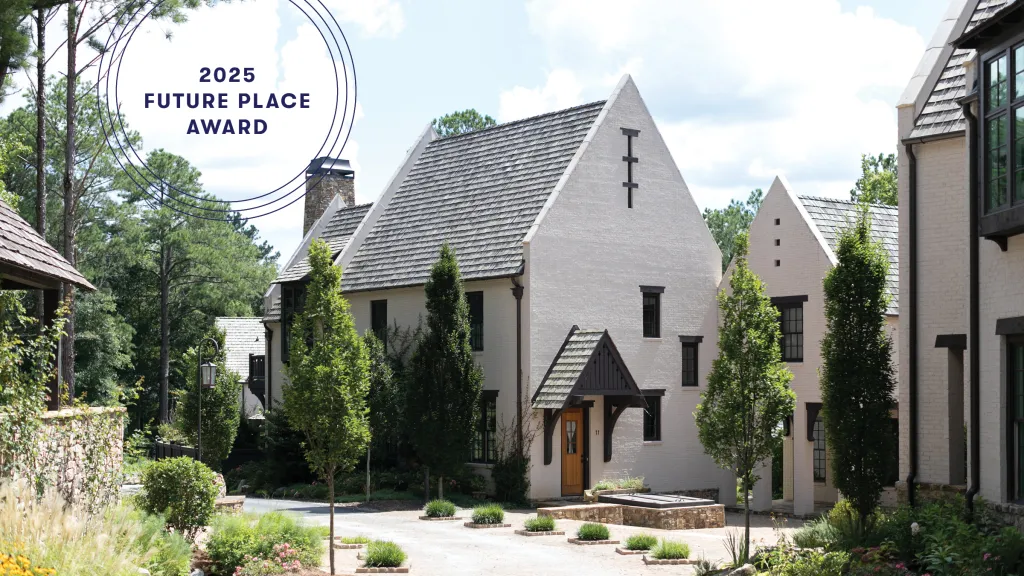.png)
Serenbe is re-establishing an agrarian economy and becoming a national think tank on regenerative agriculture.




On the southwest edge of Atlanta in Chattahoochee Hill country, Serenbe has been widely recognized as an “agrihood,” but this pioneering development is far more than a residential community with a picturesque farm. It is the manifestation of a values-driven vision—one that began not with spreadsheets or zoning maps, but with a family weekend and a historic home in the woods.
It all started in the early 1990s when Steve Nygren, a successful restaurateur and hospitality developer, frequented the area with his family. With a home in Atlanta and access to copious city amenities like museums and restaurants, he was surprised when his three daughters preferred spending weekends at their humble country house.
Looking back, Nygren recalls, “That was my value shift. I began to see, through my children’s eyes, the importance of connecting with nature over material trappings.”
After selling his company and moving to the area full-time, Nygren turned his focus to something bigger: protecting the land from encroaching urban sprawl. He quickly realized that simply buying more acreage wasn’t a long-term solution. Instead, he rallied local landowners to change zoning laws across 60 square miles and stepped into his new role as a developer.

Rather than designing the standard American suburb community, Nygren took inspiration from his international travels in Europe and placed high value on sustainability. He envisioned a thriving, biophilic community that weaved together art, agriculture, education, and wellness.
From artist-designed streetlights and benches to live ballet and theater performances, art is infused into everyday life in Serenbe. Plus, transfer fees on every home and lot fund art and environmental programming.
“Great places have art,” says Nygren. “Beauty affects your mental health, which then is a direct relation to your physical health. So, art and beauty were one of the real foundations.”
Agriculturally, the master plan includes a 25-acre organic farm, seasonal farmer’s market, a community-supported agriculture program, and edible landscaping for residents to have access to fresh food.
“The term ‘agrihood’ was actually coined here by a New York Times reporter,” Nygren shares. “We were the first to really do it this way—bringing the farm to the people.”
That commitment to food and farming has attracted national partners. According to Nygren, the Rodale Institute opened its Southeast research center nearby. The Conservation Fund launched its Farms Fund there and the American Farmland Trust is active in the region.
“We’re re-establishing an agrarian economy,” Nygren says, “and becoming a national think tank on regenerative agriculture.”
Education and wellness round out the community’s core pillars. Serenbe now offers cradle-to-cap learning through public charter and private schools, while its health and wellness initiatives include traditional and alternative providers, a non-chemical pharmacy, and a growing number of holistic practitioners.
“We’ve created a place where education happens inside and outside the classroom,” says Nygren. “Kids pick blueberries at crosswalks. They learn seasonality by living it.”
Now in its third decade, Serenbe has won numerous awards since its inception in the early 2000s, including the Urban Land Institute Inaugural Sustainability Award, the Atlanta Regional Commission “Development of Excellence,” and EarthCraft’s “Development of the Year,” and now adds the 2025 Future Place Master Plan of the Year to its list.
As a global case study in sustainable, wellness-oriented design, developers from across the country and as far away as Australia regularly visit to learn from its success. When asked how he did it, Nygren’s advice to them is simple: “Build a place you’d want to live, and where you’d want your children and grandchildren to prosper in.”
